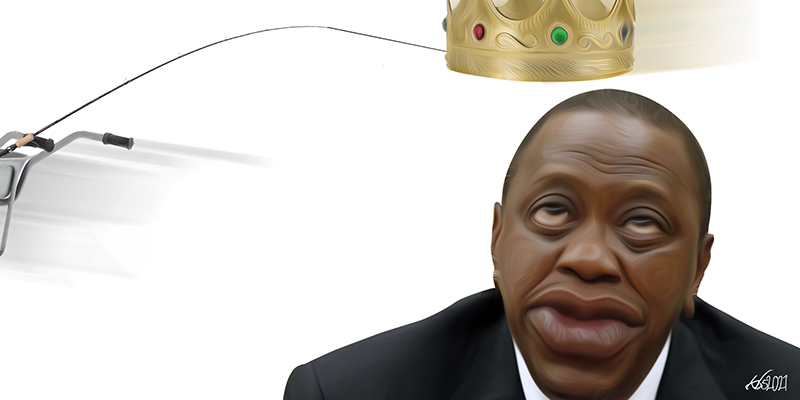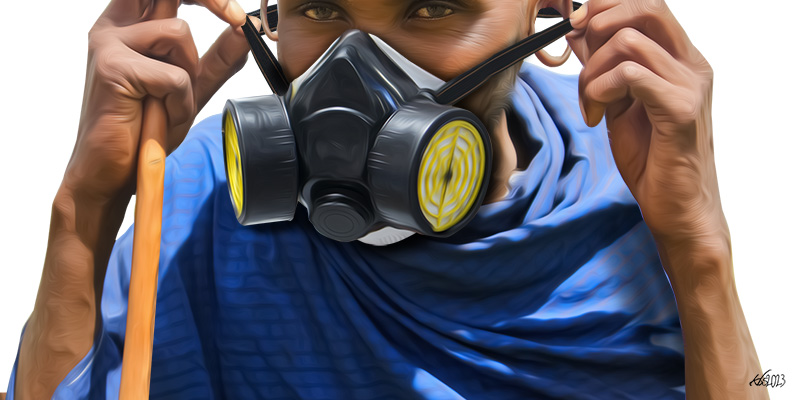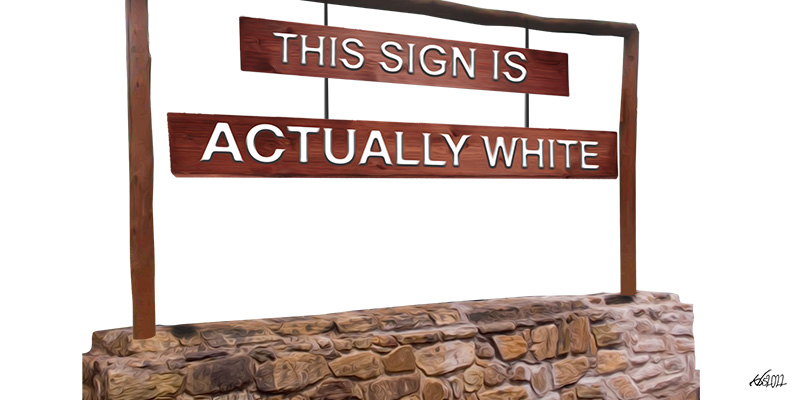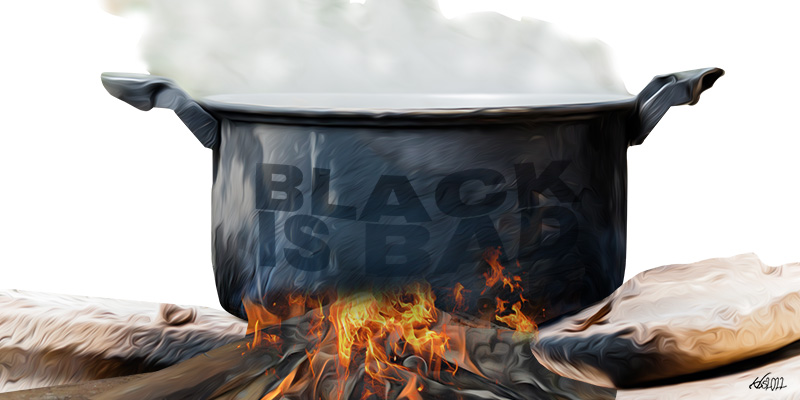Two days to the third Sagana State Lodge meeting, called by President Uhuru Kenyatta in the absence of his deputy William Ruto on 30 January 2021, 41 central Kenya MPs sent a no-holds-barred letter to Uhuru. The Sagana meeting came hot on the heels of a “state of the nation address to the Kikuyu people” at State House, Nairobi, on 18 January.
The 51-minute question and answer session — in reality a monologue from President Uhuru — was broadcast live on all the Kikuyu-language radio stations. The president was for the umpteenth time beseeching the Kikuyu voter to unquestioningly and unequivocally accept the logic of the Building Bridges Initiative (BBI), whose latest moniker is Building Billionaires Initiative.
The Building Bridges Initiative was birthed immediately after President Uhuru and Raila Odinga shook hands on 18 March 2018. Three years into the handshake, President Uhuru’s backyard has shunned the document and basically ignored the President’s pleas to support it. The exclusively ethnic meeting with the Kikuyu radio and television presenters and the Sagana State Lodge baraza were a concerted effort to bring the Kikuyu rank and file to his side.
Among the salient issues that were contained in the MPs’ 12-page letter, four stood out for me:
“In Nyamakima, Gikomba, Kamukunji and on Taveta and Kirinyaga Roads, businesses have closed as besieged traders relocate to the rural areas to dress their wounds.”
“In the bitter cold of a freezing July [sic] at the height of the deadly COVID-19 pandemic, hardworking Kenyans in Ruai and Kariobangi were woken up in the terrible turmoil of heavy machinery pulverising their homes, businesses and little hustles.”
“It has also been noted that you’ve never visited any part of Mt Kenya region to say thank you.”
“For eight years, between 2011–2018, you consistently and persistently cautioned us that Raila Odinga was Kenya’s foremost problem and pleaded with us to send him home for the country to move forward. The successful effort you made to persuade the people to render Raila Odinga unacceptable in Mt Kenya cannot be undone in your lifetime.”
That letter specifically addressed the Kikuyu people’s economic problems after the 2017 presidential elections that saw Uhuru’s win on 8 August 2017 cancelled by the Supreme Court of Kenya on 1 September only for him to win a pyrrhic victory 56 days later, on 26 October. Sworn-in on 28 November, Uhuru’s victory could not hold – hence the handshake just three months later. President Uhuru would later tell his Jubilee Party members that he could not have effectively ruled the country with Raila still in the opposition.
Kikuyus are the largest ethnic community conducting business in Gikomba, Kamukunji and Nyamakima and on Taveta and Kirinyaga Roads. The “hardworking Kenyans in Ruai and Kariobangi” referred to in the letter to Uhuru are Kikuyus. The “you cautioned us” statement also refers to the Kikuyu. But did not the president himself address an ethnic matter in an ethnic language, couched as a national question? The MPs might as well have written their letter in Kikuyu.
Three years into the handshake, President Uhuru’s backyard has shunned the document and basically ignored the President’s pleas to support it.
The Nyamakima debacle was reported in The Elephant in 2019. In July 2020, The Elephant published a piece about the Kariobangi North evictions. The brutal, state-sanctioned demolitions – the letter speaks of a “freezing July” but the evictions actually took place during a very cold month of May — were visited on the hapless impoverished ghetto dwellers. Thoroughly embarrassed, the government asked the Internal Security Principal Secretary’s office to identify all the victims of the evictions and indemnify them quietly away from the glare of the public and the press.
The 41 MPs were not invited to Sagana because they do not belong to President Uhuru Kenyatta’s wing of the Jubilee Party, dubbed Kieleweke, but belong to Tanga Tanga, a tag that connotes a loiterer. The MPs’ letter was a deft move by politicians who have detected dissent from rebellious peasants against President Uhuru and smelt a rat on a waddling president who is serving his lame-duck years and could therefore afford to tell him off without fear of recrimination. (In October 2019, The Elephant published a story titled The Rebels Within: The politics of Kieleweke and Tanga Tanga in Central Kenya.)
Immediately after his December holidays in his Murang’a County, on 30 December 2020, Senator Irungu Kang’ata penned “a letter to my president”. The long winding letter was just about one thing: “Mr President, you’re unpopular and not wanted in Mt Kenya region. And you know why. Period.” A month and a half after the letter was leaked to the press, Kang’ata was replaced as Senate Majority Whip by Kiambu County Senator Kimani Wamatangi on 9 February 2021. Kang’ata had replaced Nakuru County Senator Susan Kihika in May 2020; she was removed because she belongs to the Tanga Tanga team.
The address to the Kikuyu nation boomeranged on the beleaguered President, even as he hoped to frame his monologue as an “us vs them”, “us” being the Kikuyu and “them” being the Kalenjin. “How could the President have the audacity to tell the Kikuyu poverty stricken fellow that the government loses KSh2 billion every single day?” posed Stanislaus Njogu of the Kĩama Kĩa Ma (the Truth Council).
“The Kikuyus were very furious; if Uhuru thought he was impressing them, he had scored zero points,” Njogu, an elder from Kiambu County said after listening to the president calling them andũ aitũ (our people), Kikuyus decided that “Uhuru nĩ kwĩyarĩria ekũĩyaragĩria na kũoguo ecokeria.” President Uhuru had been talking to himself, therefore, he can as well answer himself. Njogu said many Kikuyus wanted President Uhuru to desist from using the royal “we” when referring to them, “we are no longer together”. The mzee said that is what some of the council members had told him.
The MPs’ letter was a deft move by politicians who have detected dissent from rebellious peasants against President Uhuru.
Kĩama Kĩa Ma, which is led by engineer Patrick Mwiru from Gatundu South, is a much bigger and more credible organisation than the Wachira Kiago-led Kikuyu Council of Elders. It is more active, more broad-based, has both a youthful and an older membership, the majority from Kiambu County.
The statement on the daily theft of KSh2 billion had particularly infuriated ordinary Kikuyus: “Gũtirĩ mũici na mũcũthĩrĩria,” there is no thief and onlooker, said a middle-aged man who had just paid his dues – a sacrificial lamb – to the Truth Council in order to be initiated as a junior elder. “So, Uhuru’s aware of the exact cash that is being pilfered daily from the state coffers? Therefore, he knows who does it? What has he had done about it? That money is probably stolen by himself and his cronies. He can’t keep telling us Ruto is a thief – did we elect Ruto or Uhuru?”
Mũtahi Ngunyi, nowadays a State House operative, recently told me that Ruto being referred to as a thief by Kikuyu political barons was a shot in the dark: “Kikuyus grew up being called thieves, big deal, the word thief to a Kikuyu is not an abomination, to tell them that Ruto is a thief is to remind them that, indeed, he’s one of them. Try something else.”
The junior elder said President Uhuru had failed the Kikuyus miserably and for that they were hell-bent on punishing him. “Gĩathĩ kĩa ngũha gĩthiragĩra gũtũ.” The resolve of a tick (a parasite) to draw blood from a cow ends up at the ear. “It seems the Kikuyus’ resolve to seek revenge on Uhuru is total,” said Njogu. “Right now, they are behaving like the proverbial tick: they won’t rest until they draw blood.” Njogu said the leadership of the Truth Council will not publicly voice their dissent against the BBI, but it is not happy. It doesn’t want to pick a fight with Uhuru, not now, but the followership which is mostly made up of middle-aged men was taking no prisoners.
“After ruining our lives, Uhuru now wants to impose Raila on us,” said the junior elder. “The hatred for Raila among the Kikuyus is total: we’ll never accept him. I’m a true Kikuyu and will never vote for him. If Raila is such a fanciful idea to [Uhuru], how come he has yet to bring him to us? It is because he is unsellable – now more than ever before. Ruto’s a thief, uh huh? We like thieves. Kaba gũciara mũici gũkira kĩrimũ.” It is better to sire a thief than an idiot, said the junior elder.
The junior elder said President Uhuru’s association with David Mũrathe leaves a sour taste in the mouths of many Kikuyus. “Murathe is a scam, he’s a loudmouth and no sane Kikuyu pays attention to his utterances.” He alleged that Murathe had sold the Gatanga seat to Kanu in 1997, and for that, Kikuyus, especially those from Murang’a County, had not forgiven him. Kanu – then led by President Daniel Moi – is anathema to Kikuyus.
One June evening last year at the height of the coronavirus pandemic, Murathe went for a drink at Castle Inn in Garden estate. Some Murang’a moguls who patronise the club found him seated at the counter alone. Once ensconced in their corner, they summoned the manager and told him to evict Murathe. These tycoons are the kings of downtown Nairobi, overseeing multi-million shilling businesses that include real estate and major distributorships of both alcoholic and soft beverages, among others. The moguls, who on a quiet evening, in a single sitting, can write a cheque for tens of thousands of shillings, call the shots at the club. Murathe was asked to leave immediately, his unpaid bill notwithstanding.
Maina Kamanda, a nominated MP and a vocal BBI proponent who has accompanied Raila several times as he tries to make inroads into the hearts and minds of the Kikuyu, is also held in contempt, especially by Kikuyu traders in Nairobi. “They consider him selfish and a sectionalist,” said Njogu. Although he hails from the greater Murang’a, Kamanda’s home is today in Nyandarua County, near Ol Kalou town, where he bought land and where he is mostly to be found when not engaged in politics.
“Kamanda is a spent force, he neither speaks for Kikuyus in Nairobi nor Murang’a,” said a street vendor from Murang’a County. “If he is still interested in politics, he should run in Nyandarua. We’ll never elect him here in Nairobi, and he can’t be voted in Murang’a after dissing his ancestral home.” Njogu said it was odious that President Uhuru should ask Kamanda to accompany Raila to address Kikuyu rallies: “Kamanda draws only scorn and distaste from Kikuyus.”
President Uhuru had treated Merus recklessly and shabbily, said a Kĩama Kĩa Ma Meru elder. “I’ll tell you this, Merus are very annoyed with Uhuru for taking us for granted. Even after some of us voted for him thrice, he hasn’t found it fitting to at least say thank you. He hasn’t visited the area, he just moved on with his life after getting the Meru votes.” He could not but be nostalgic about President Mwai Kibaki’s days. Kibaki was Kenya’s third president between 2003 and 2013. “Kibaki was an honourable old man, he knew how to say thank you and we loved him. How we miss the days he was President.”
The notion that President Uhuru had “neglected” the Mt Kenya region, especially the region occupied by Embu, Meru and Mbeere people, was also echoed by Joseph Nyagah in a conversation we had weeks before he died on 11 December 2020.
If President Uhuru’s radio interview was a “car crash”, the outcome of the Sagana State Lodge meeting was even less soothing to struggling Kikuyus. “You mean Uhuru has just acquiesced to the greedy MCAs?” said Muchiri, a Nairobi businessman. “He can find KSh4 billion to give to politicians to buy cars, but he can’t find money to stock medicine in hospitals? We’ll be waiting for these MCAs next year, 2022 is not a century away and for Uhuru and his BBI, he can bribe the MCAs all he wants, we’ll not pass the damn document.”
Njogu said Kikuyu hatred for President Uhuru had gone grassroots. “The angriest are those that voted for him twice in 2017. They cannot now believe that he’s wining and dining with Raila.” The mzee said that Kikuyus consider this to be the ultimate insult. “After poisoning them against Raila for such a long time and to now tell them that he’s the man they should work with was just mindboggling.”
Faced with the threat of being taken to the International Criminal Court (ICC) in 2012, Uhuru Kenyatta whipped up ethnic Kikuyus in a well-choreographed tribal mobilisation the likes of which had not been witnessed in modern Kenya. By election day on 4 March 2013, Kikuyus were so filled with anti-Raila venom that they could have died or killed for Uhuru. “Uhuru succeeded in dangerously balkanising the Kikuyus, telling them that Raila was planning to send him to the ICC once he takes over as President of Kenya,” said a lawyer from Kiambu County that I interviewed in 2012. That lawyer is one of the writers of the BBI (II) document that proposes a powerful presidency.
Thiya ndĩthũire mũmĩũragi ta mũmeanĩrĩri. An antelope hates those who expose it to danger more than it does its predators. “Kikuyus have always been wary of Raila’s intentions if he ever took state power,” said Njogu, quoting to me the above Kikuyu idiom, “They have a lot of misgiving about him: from truly believing that he will revenge against them for the sins committed against his father [Jaramogi Oginga Odinga] by [Jomo] Kenyatta to weirdly believing that when he says he will fight institutional corruption, he actually means that he will ensure they are cut to size, that is, crash their businesses and riches.”
If President Uhuru’s radio interview was a “car crash”, the outcome of the Sagana State Lodge meeting was even less soothing to struggling Kikuyus.
Njogu said Kikuyus like reminding themselves how Raila crafted the narrative of “‘41 [tribes] against one’, inordinately exposing his malicious intentions against the Kikuyu people.” In the lead-up to the hotly contested 2007 presidential election that pitted President Kibaki, running on a Party of National Unity (PNU) ticket, to Raila who was running on an Orange Democratic Party (ODM) ticket — with Ruto as Raila’s de facto running mate — the 41 vs 1 came to be viewed as the opposition’s official mantra.
During Raila’s recent meet-the-Kikuyu-people Githurai Market tour, the wary Kikuyus could be heard saying “tũramuonera eitini,” meaning, “we are aware of Raila’s dubious intentions”. Raila arrived at the Market at 10.30 a.m. on 28 January 2021 and went straight to the Migingo area. The market is divided into several areas such as Posta and Family Bank. Migingo is now ring-fenced because it had encroached on railway land, but it is still expansive and it can hold a meeting.
At Migingo Raila was welcomed by the market leaders led by Joseph Wanyoike and Peter Kamau. They told him about the need to construct a bridge to connect to the railway line area that was separated by the fence. Ever since the fence was erected, people have to walk a long distance to cross over to the other side. Raila promised that the government would build the bridge. It was a short meeting and he moved on to the roundabout area where the masses was waiting.
Raila spoke to the crowd atop his vehicle, cautioning them not to be confused by the “wheelbarrow” narrative as he extolled the virtues of BBI. “Will you allow that man of the wheelbarrow to sow his retrogressive politics here?” Raila upped his rhetoric. The waiting crowds answered him by chanting Ruto’s name interspersed with shouts of “wheelbarrow”. The crowd did not allow him to continue speaking, with some yelling, “you cannot feed on rhetoric.”
The crowd exasperated Raila and he accused Jubilee Party-nominated Senator Isaac Mwaura of inciting them. On 9 February Mwaura was demoted and stripped off his senatorial position by the party. Mwaura had indeed visited the market area on the eve of Raila’s visit and incited the people. “Nĩmwakĩmenya rũciũ nĩagoka, mũkĩmenye ũrĩa mũkamwĩra.” You are aware (Raila) is coming here tomorrow. I hope you’ve planned what to tell him.
Mwaura, whose entry into the political limelight was through the opposition ranks when he was nominated as ODM MP in 2013, was to shift gears and join the ruling Jubilee Party in 2016, where he was rewarded with yet another nomination in 2017. Keen to enter elective politics, Mwaura seems to be preparing to contest the Ruiru constituency seat in Kiambu County. He has defected once more – this time within the Jubilee Party ranks – and thrown in his lot with the Tanga Tanga team. His bashing of the BBI has greatly displeased the president, who must have sanctioned his sacking.
In October 2020, Ruto too had gone to Githurai Market. The market is a catchment area, which represents a cache of votes because of its huge population that straddles Nairobi and Kiambu counties. The deputy president came along with 500 wheelbarrows and 100 mkokotenis (push carts). He had certainly done his “market survey” (pun intended). The wheelbarrow is the most sought-after piece of equipment at the bustling market. Because of this, it is also the most stolen item. Traders who do not have their own wheelbarrows hire them for KSh50 a day and in the evening, they pay an extra KSh20 for storage overnight. Each of the wheelbarrows that Ruto delivered came with an umbrella to protect the trader from the vagaries of the weather.
“Detractors of the wheelbarrow can say all they want,” said 30-year-old trader Peter Mungai. “For all the 10 years I’ve lived in Nairobi, I’ve earned my keep from this wheelbarrow.” Mungai started hawking watermelons on a pavement next to the market. Then in 2019, a brutal eviction by Nairobi County askaris led to the loss of goods and equipment including wheelbarrows and push carts. Mungai bought a new wheelbarrow and now hawks sugarcane.
“Hawking sugarcane has a much wider radius than melons,” explained Mungai. “I’ll tell you this: I voted Uhuru two times in 2017, but look at his gratitude. I don’t want to know about BBI, its promises and lies, I’ve no need for it. Make no assumptions, I went to school, I can read and comprehend. In the 10 years I’ve lived in Nairobi, I started a family, all because of this wheelbarrow. In 2022, I’ll be voting for Ruto, because I’m a wheelbarrow hustler.”
“Uhuru and Raila and indeed anybody else can criminalise the wheelbarrow. What have they ever given? I don’t want to speak much, some of my friends were lucky to get a wheelbarrow from ‘thief Ruto’. They can hustle and deliver something to their families in the evenings. Meanwhile ‘thieves Uhuru and Raila’ can continue selling BBI, telling us it will bring us [Kikuyus] goodies. It is good because our children will feed on something called promises hidden somewhere in the BBI, which must wait to be passed by a referendum.”
The story of the wheelbarrow, in the words of Mungai, indeed cannot be spoken about much here. It is a story for another day. Suffice it to say that at Githurai Market I met a 27-year-old Kenyatta University BA graduate. From an impoverished peasant family, he did not waste time looking for a non-existent job after graduating with an upper second in economics. He landed at Githurai Market and started carrying the market women’s goods as a kua, a man who carries a load on his shoulders.
“Look at me, I’m a lanky fellow, but was I going to further burden my mother with my survival problems? She had already done much and I’ll be eternally grateful for ensuring I got some education. At the market, the women call him Ka-Waithira, son of Waithira, because that is how he calls himself. From kua, Ka-Waithira graduated to a wheelbarrow owner and made his work easier. “I’m now looking to investing in a push cart, because it carries much bigger and heavier loads.”
Ka-Waithira told me he had expanded his skills to include balancing accounts for the market women: “You’d be shocked to learn the kind of money these women handle. I was.” In his spare time he also explains simple economics to the women – supply and demand theory, economies of scale, the difference between macro- and microeconomies. “I really have no time for Uhuru and BBI. He has hugely let my mother down. She believed in him and it nearly killed her because of depression. Githurai, as you’ve seen for yourself is a ‘hustler nation’. Uhuru has only been interested in advancing his family’s fortunes and the Kikuyus have become the wiser. Do you think I’d be languishing here at Githurai Market if I came from a well-connected family or I schooled at St Mary’s?”
As President Uhuru Kenyatta plots how to woo the recalcitrant Kikuyus back into his political fold, it is evident that his work for in the next 16 months is cut out him. For now, he has to contend with a gleeful Deputy President William Ruto who seems to have effortlessly taken over his backyard.








